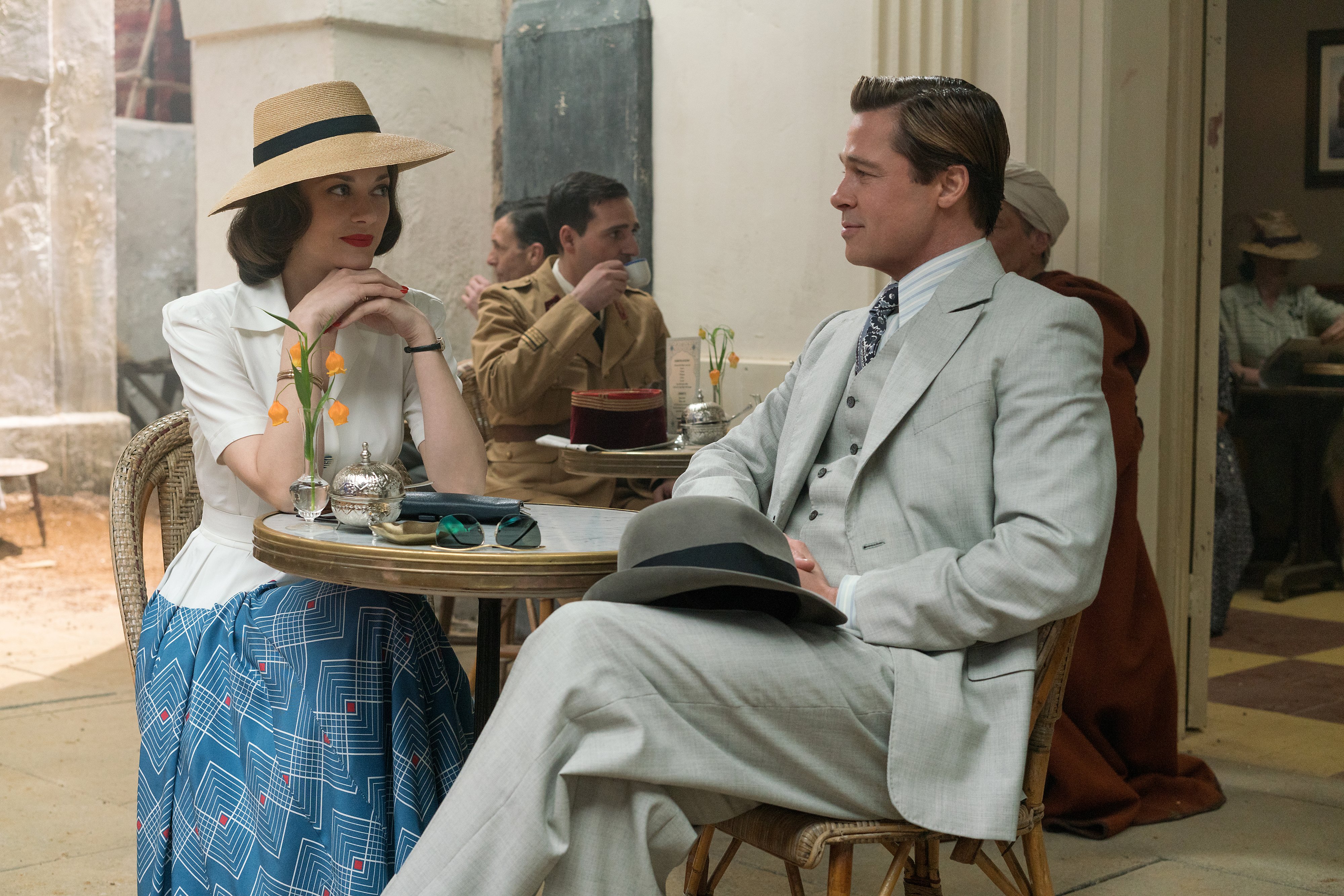Robert Zemeckis’s dull nostalgia shop “Allied” holds two brilliant actors hostage for a wartime romance, which evokes, but never lives up to the legacy of “Casablanca.” Their on-screen chemistry is immediately unleashed the moment Max Vatan (Brad Pitt), a Canadian intelligence officer stationed in North Africa, takes Marianne Beausejour (Marion Cotillard), a French resistance fighter, into his arms. On a rooftop high above the hot Moroccan night, she seductively tells her partner-in-crime “The mistake people make isn’t fucking. It’s feeling.” No matter — they fuck and feel anyway. But even after countless beautiful shots of the couple dawdling in the windblown desert, the movie never taps into something deeper. They remain cutouts of a classic Hollywood couple, without the subtlety that Ilsa and Rick carried.
After the unbuttoning of shirts and a successful assassination, the film slows to play out Max and Marianne’s marriage humdrums in London. Which is perfectly acceptable. Cotillard starts to shed her typecasting as a French seductress. Pitt still tries to play the rugged, strutting 40’s man, but he’s a dad. Bombs fall as kisses are planted and babies emerge from the womb. Most of it is typical housewife magazine fluff. But Zemeckis captures irony like no other — the perfect, almost disquieting, normalcy in a time of war. When Max and Marianne’s daughter takes her first steps on a green field, just yards away, thick wisps of smoke flood out of a crashed fighter jet. War descends, with jarring gravity, on the happiest moments; life goes on.
Or does it?
One day Max’s superior calls him into headquarters to hold convincing evidence against him. Evidence that his wife is a double agent, and that the previous scenes of marital bliss were all a setup. Max returns to the hilly suburbs of London with the creeping realization that all this time the deck was stacked against him. Sedition lurks in every corner of his household; we become tense to what was taken for granted before: the rustle of the curtains, a flicker of the mirror. The entire first half of the movie is put into question as Max paces the floor, retracing every word Marianne has said to him.
What Zemeckis could have done after this point might have made this movie brilliant. There were nothing but possibilities: a foray into the domestic battlefield, a dispute between patriotic and intimate love, a rebellion of the domestic woman. But sadly, “Allied” is not bold enough to make any of those choices. It gives us a rash that it never manages to scratch. What follows instead are random Bond-esque montages — including a midnight flight to France — that keeps the two warring lovers apart. If Zemeckis had bound the couple within the household constraints, we could have had a domestic-thriller “Who’s Afraid of Virginia Woolf.” But Zemeckis is the man behind “Forrest Gump,” and he only has the heart to reunite tragic romances for sappy ending. Yes, there’s even a plane at the end, like in “Casablanca.”
Perhaps from the very beginning “Allied” was too afraid to explore the difficult story it promised us. How many movies about World War II have been produced so far? And how many involved a blooming romance? Between two lovers divided by none other than the war itself? Far too many, to be sure. By so closely following the trappings of the classics, “Allied” never quite becomes a classic itself. At moments where it must soar, it slouches. Pitt and Cotillard, both oh-so-talented actors, are assigned roles as strict as 40’s gender stereotypes, never given a chance to break out of character.
Contact Elaine Kim at elainekm ‘at’ stanford.edu.
